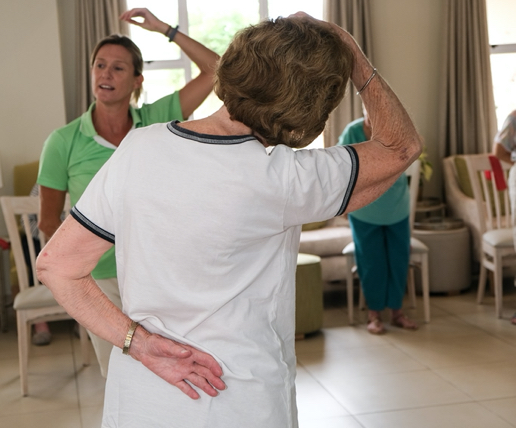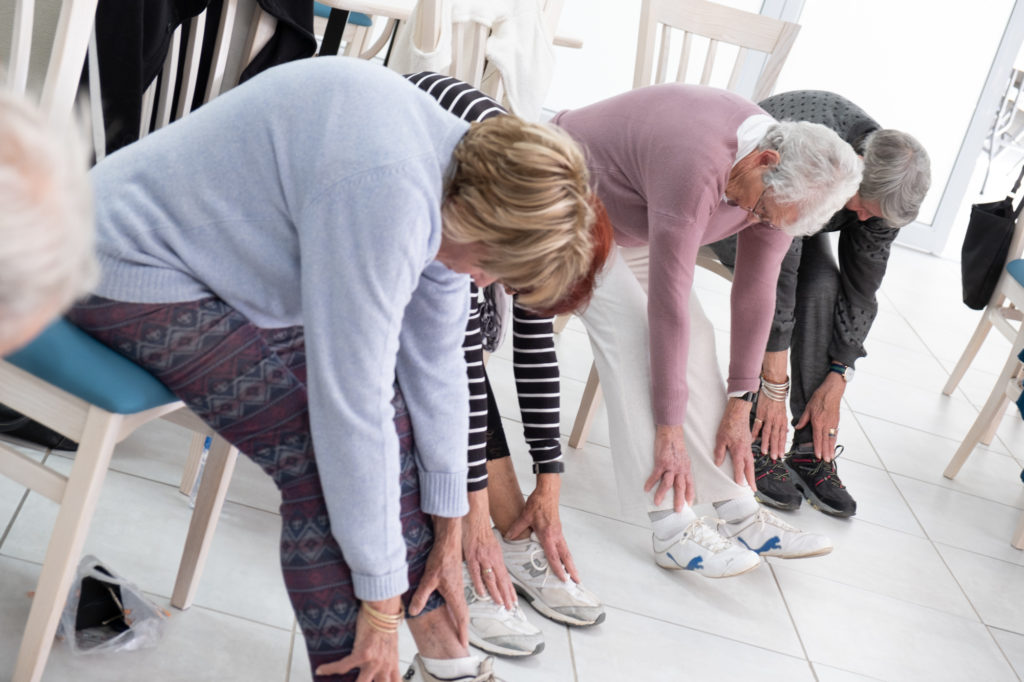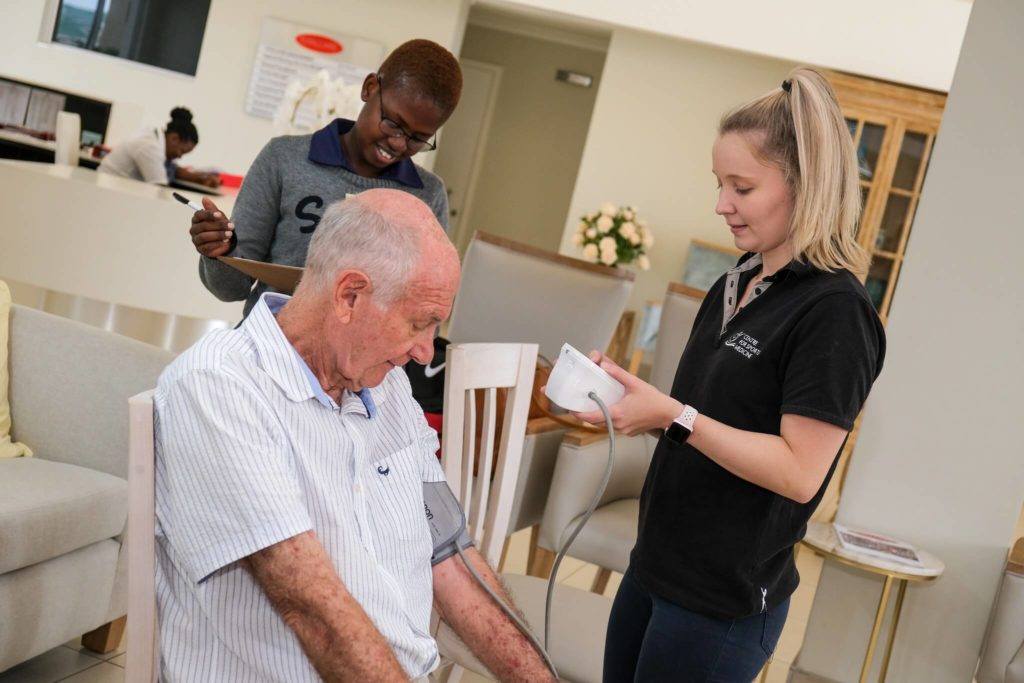



In short, purpose offers definite emotional and psychological benefits!
Purpose can influence physical health
In addition to the emotional and psychological benefits, having a strong sense of purpose can also help you:
Live longer. A 2009 study of over 73,000 Japanese men and women found that those who had a strong connection to their sense of purpose (which they call ikigai) tended to live longer than those who didn’t. Additionally, in his study of “Blue Zones” (communities in the world in which people are more likely to live past 100), Dan Buettner identified the factors that most centenarians share, one of them being a strong sense of purpose. In 2014, researchers used data that tracked adults over 14 years and found that "having a purpose in life appears to widely buffer against mortality risk across the adult years." Protect against heart disease. Another study in 2008 found that a lower level of purpose in Japanese men was associated with earlier death and cardiovascular disease. More research in this area showed that “purpose is a possible protective factor against near-future myocardial infarction among those with coronary heart disease.” Prevent Alzheimer’s disease. In studies of thousands of elderly subjects, Dr. Patricia Boyle, a neuropsychologist at the Rush Alzheimer’s Disease Center in Chicago, found that people with a low sense of life purpose were 2.4 times more likely to get Alzheimer’s disease than those with a strong purpose. Further, people with purpose were less likely to develop impairments in daily living and mobility disabilities. Handle pain better. Purpose can also positively affect pain management - a study in The Journal of Pain found that women with a stronger sense of purpose were better able to withstand heat and cold stimuli applied to their skin.
Purpose leads to better relationships
Read more about the importance of relationships
A 2009 study assessing the purpose of over 1,000 adults found that those with a high sense of meaning in their lives spent more time and attention on their loved ones and communities.
On the whole, people with purpose tend to be more engaged with their families, colleagues, and neighbors, enjoying more satisfying relationships as a result.
The retirement effect
According to Dan Buettner, the two most vulnerable times in a person’s life are the first twelve months after birth and the year following retirement. In fact, you have probably heard stories about perfectly healthy men who died shortly after they retired from a lifelong career. Some researchers suspect that for these men, the end of their career also signified the end of their purpose in life, which affected their health and wellbeing.
A study of retired employees of Shell Oil found that men and women who retired early (age 55) were more likely to die early than those who retired at age 65. A similar study of almost 17,000 healthy Greeks showed that the risk of death increased by 51% after retirement.
These two studies suggest that there may be some risk in only finding meaning in a career. It seems important to reshape life’s big questions and find ways to continue serving purpose even after retirement to improve chances of a longer, healthier life.
Living with purpose promotes resilience
One of the common features among people who live with purpose is that they are able to find meaning in the things that happen to them. Andrew Zolli, author of Resilience, describes these people as being able to “cognitively reap praise situations and regulate emotions, turning life’s proverbial lemons into lemonade.”
Ed Diener’s extensive research on the science of wellbeing has found that people with a strong sense of purpose are better able to handle the ups and downs of life. Purpose can offer a psychological buffer against obstacles - thus, a person with a strong sense of purpose remains satisfied with life even while experiencing a difficult day. According to Barbara Fredrickson, this kind of long-term resilience can lead to better cardiovascular health, less worry, and greater happiness over time.
BY: Barb Leonard and Mary Jo Kreitzer
Whilst every effort is taken to avoid errors, the company cannot accept responsibility for the accuracy of any statement, extract or information contained within the sections of this product and or service, nor can any of its contributors who have submitted material for inclusion. The company may update this product and or service and anything described in it without notice. Errors and omissions excepted (E&OE).
Perhaps you have experienced moments when you felt truly connected, like you were performing a task you were made for – maybe when you were organizing a grassroots campaign, comforting a sick grandchild, or creating a piece of art or music. It is likely that this was a moment of being in harmony with your purpose.



Living on purpose feels alive, clear, and authentic. You may also experience “flow,” which is a state of total absorption in which time seems to disappear and you feel content and fulfilled.
In short, purpose offers definite emotional and psychological benefits!
Purpose can influence physical health
In addition to the emotional and psychological benefits, having a strong sense of purpose can also help you:
- Live longer. A 2009 study of over 73,000 Japanese men and women found that those who had a strong connection to their sense of purpose (which they call ikigai) tended to live longer than those who didn’t. Additionally, in his study of “Blue Zones” (communities in the world in which people are more likely to live past 100), Dan Buettner identified the factors that most centenarians share, one of them being a strong sense of purpose. In 2014, researchers used data that tracked adults over 14 years and found that “having a purpose in life appears to widely buffer against mortality risk across the adult years.”
- Protect against heart disease. Another study in 2008 found that a lower level of purpose in Japanese men was associated with earlier death and cardiovascular disease. More research in this area showed that “purpose is a possible protective factor against near-future myocardial infarction among those with coronary heart disease.”
- Prevent Alzheimer’s disease. In studies of thousands of elderly subjects, Dr. Patricia Boyle, a neuropsychologist at the Rush Alzheimer’s Disease Center in Chicago, found that people with a low sense of life purpose were 2.4 times more likely to get Alzheimer’s disease than those with a strong purpose. Further, people with purpose were less likely to develop impairments in daily living and mobility disabilities.
- Handle pain better. Purpose can also positively affect pain management – a study in The Journal of Pain found that women with a stronger sense of purpose were better able to withstand heat and cold stimuli applied to their skin.
Purpose leads to better relationships
Read more about the importance of relationships
A 2009 study assessing the purpose of over 1,000 adults found that those with a high sense of meaning in their lives spent more time and attention on their loved ones and communities.
On the whole, people with purpose tend to be more engaged with their families, colleagues, and neighbors, enjoying more satisfying relationships as a result.
The retirement effect
According to Dan Buettner, the two most vulnerable times in a person’s life are the first twelve months after birth and the year following retirement. In fact, you have probably heard stories about perfectly healthy men who died shortly after they retired from a lifelong career. Some researchers suspect that for these men, the end of their career also signified the end of their purpose in life, which affected their health and wellbeing.
A study of retired employees of Shell Oil found that men and women who retired early (age 55) were more likely to die early than those who retired at age 65. A similar study of almost 17,000 healthy Greeks showed that the risk of death increased by 51% after retirement.
These two studies suggest that there may be some risk in only finding meaning in a career. It seems important to reshape life’s big questions and find ways to continue serving purpose even after retirement to improve chances of a longer, healthier life.
Living with purpose promotes resilience
One of the common features among people who live with purpose is that they are able to find meaning in the things that happen to them. Andrew Zolli, author of Resilience, describes these people as being able to “cognitively reap praise situations and regulate emotions, turning life’s proverbial lemons into lemonade.”
Ed Diener’s extensive research on the science of wellbeing has found that people with a strong sense of purpose are better able to handle the ups and downs of life. Purpose can offer a psychological buffer against obstacles – thus, a person with a strong sense of purpose remains satisfied with life even while experiencing a difficult day. According to Barbara Fredrickson, this kind of long-term resilience can lead to better cardiovascular health, less worry, and greater happiness over time.
BY: Barb Leonard and Mary Jo Kreitzer
Whilst every effort is taken to avoid errors, the company cannot accept responsibility for the accuracy of any statement, extract or information contained within the sections of this product and or service, nor can any of its contributors who have submitted material for inclusion. The company may update this product and or service and anything described in it without notice. Errors and omissions excepted (E&OE).
